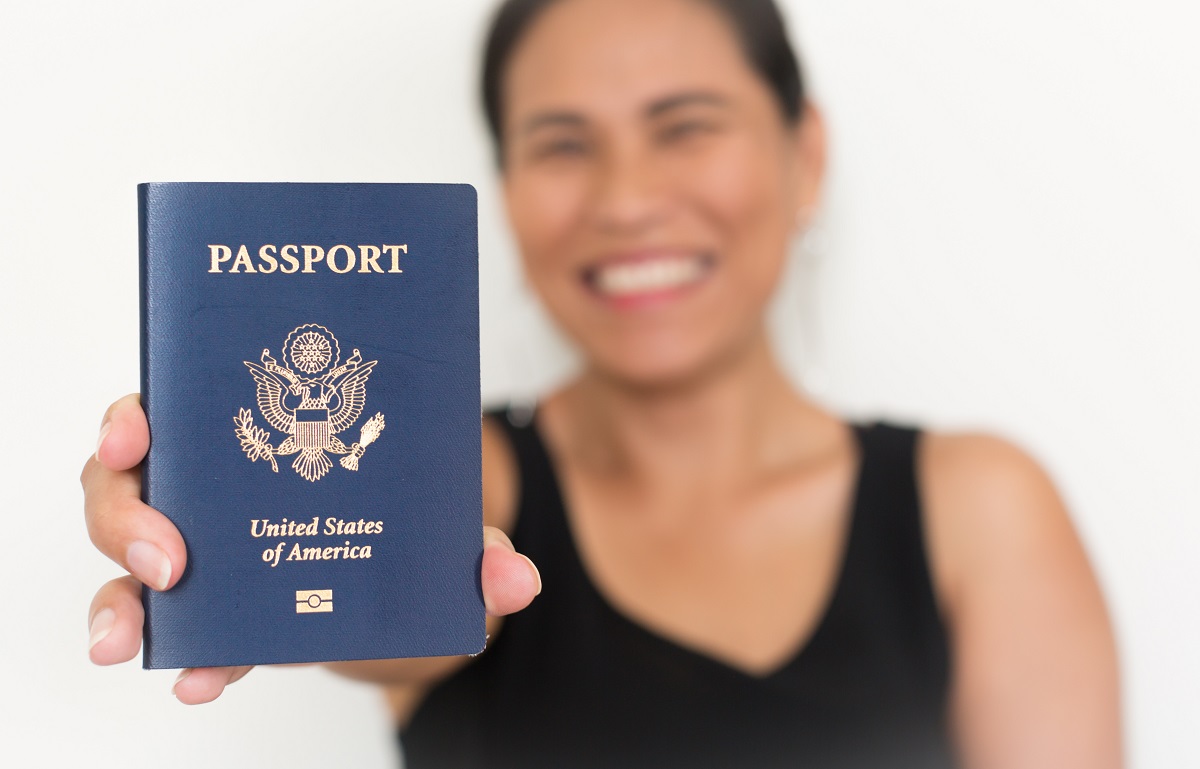
Gaining U.S. citizenship for a child can feel overwhelming, but the Child Citizenship Act (CCA) of 2000 makes it easier for certain children of U.S. citizens to automatically acquire citizenship. Whether your child was born abroad or adopted, the CCA offers a streamlined pathway to ensure they can benefit from the same rights and protections as any other U.S. citizen. In this article, we’ll cover everything you need to know about automatic citizenship for children after a parent naturalizes. We'll also explain the steps involved and some common legal nuances that may affect eligibility. By understanding these details, you can confidently navigate the application process and secure your child’s citizenship.
Child Citizenship Act of 2000, Explained
Before the Child Citizenship Act
Getting Proof of Your Child’s Citizenship
How to Apply for Citizenship for a Minor Child
How to Apply for a U.S. Passport for a Minor Child
Replacing Parent's Citizenship Documents
Understanding Legal Nuances of the Child Citizenship Act
Get Help Obtaining a Certificate
Child Citizenship Act of 2000, Explained
The Child Citizenship Act (CCA) went into effect on February 27, 2001, and changed the way immigration law treats children of naturalized citizens. With the enactment of CCA, a child is likely a U.S. citizen if all the following conditions are true (or were true) at the same time:
- The child is under 18 years of age (born on or after February 27, 1983);
- The child is a lawful permanent resident (green card holder);
- At least one of the parents is a U.S. citizen; and
- The U.S. citizen parent has shared or sole legal and physical custody of the child.
If all four of these things are true at the same time, the child “derives” citizenship from the parent in most cases. The U.S. citizen parent must be the biological parent of the child or a parent through a legal adoption of the child. Citizenship cannot be derived from a step parent relationship. Applying for child citizenship will also get more complicated if the father is the U.S. citizen and the child was born out of wedlock or is no longer married to the biological mother.
Before the Child Citizenship Act
The Child Citizenship Act of 2000 applies to child born on or after February 27, 1983. For children born prior to February 27, 1983, a different law applies. Generally, both of the child’s parents had to naturalize before the child turned 18, unless the parents had legally separated and the custodial parent naturalized before the person turned 18. Death of a parent would also provide an exemption. The law has changed a few times prior to the CCA. If you were born prior to February 27, 1983, some research with an attorney may be necessary your specific situation.
Getting Proof of Your Child’s Citizenship
Assuming that the child meets the requirements of the law and has derived citizenship from a parent, they need proof of U.S. citizenship status. In other words, the child automatically becomes a U.S. citizen, but the child is not automatically recognized by the government as a U.S. citizen. Most people obtain a Certificate of Citizenship, U.S. passport, or both. These documents are proof of your child’s U.S. citizenship.
Although there is no requirement to obtain this documentation immediately, it is generally easier to do right away. Over time, people lose track of the necessary documentation to establish eligibility. When they decide to apply several years later, they find it difficult to find the correct supporting documents to make a claim to U.S. citizenship. In our business, we speak to people every week that have trouble documenting their citizenship because parents didn’t do it many years before. It’s smart to get a U.S. passport and a Certificate of Citizenship for your child. Having both can help protect your child from problems later in life. But you are not required to get both documents.
Certificate of Citizenship
After you submit an application, U.S. Citizenship and Immigration Services (USCIS) can issue your child a Certificate of Citizenship. Your child cannot use the certificate for travel, but it is good for their entire life. A Certificate of Citizenship never expires. Later in life, the certificate is also important evidence to apply for certain benefits like Medicare, Social Security, college applications, or even replace a passport.
U.S. Passport
A passport can also serve as proof of U.S. citizenship. It is also a very practical document because the child can use it for travel abroad. Applications for U.S. passports are less expensive than the Certificate of Citizenship, and passports are issued more quickly. However, passport books do expire after 10 years. Additionally, the passport may not be sufficient proof of U.S. citizenship for certain benefits as mentioned above.
How to Apply for Citizenship for a Minor Child
To apply for your child’s citizenship document, you’ll need to file Form N-600, Application for Certificate of Citizenship. You may download the file from the USCIS website or prepare it using CitizenPath’s attorney-reviewed software.
Generally, you need to send the current USCIS N-600 filing fee and following items as part of a claim to U.S. citizenship:
- Signed Form N-600, Application for Certificate of Citizenship
- Two passport-style photos of child
- Child’s birth certificate
- Child’s permanent resident card
- U.S. citizen parent’s birth certificate
- Parent’s Certificate of Naturalization
- Parent’s marriage certificate
- Evidence of child’s legal and physical custody with the U.S. citizen parent
Again, children born out of wedlock or with parents who have separated may have additional requirements.
CitizenPath makes the application process easier and offers a money-back guarantee. We help you obtain a Certificate of Citizenship or you pay nothing. In addition to your prepared form, CitizenPath provides you with a set of personalized filing instructions that includes a detailed checklist of supporting documents, directions on how to organize your application, and where to mail it. Our customers start for free and pay only at the end once they confirm eligibility and complete the form. Learn more >>
How to Apply for a U.S. Passport for a Minor Child
To apply for a child's passport, you'll need to submit Form DS-11, Application for a U.S. Passport. You can find it online on the U.S. Department of State website. Additionally, some government facilities like public libraries and post offices have resources to help you.
Generally, you’ll need to same supporting documents as listed above for the N-600 application. If you’ve already obtained a Certificate of Citizenship for your child, your list of required documents will likely be:
- Application fee (currently $135)
- Form DS-11, Application for a U.S. Passport
- Copy of child's Certificate of Citizenship
- U.S. citizen parent's government-issued photo ID
- One passport-style photo of child
Replacing Parent's Citizenship Documents
If the child is claiming citizenship after a parent's naturalization, the N-600 application must include evidence that the parent became a U.S. citizen before the child turned 18. In most cases, this can be accomplished by submitting the child's birth certificate and the parent's Certificate of Naturalization. But what if the Certificate of Naturalization has been lost, stolen or destroyed?
Replace Certificate
When an original Certificate of Naturalization is no longer available, the parent can replace it by filing Form N-565, Application for Replacement Naturalization/Citizenship Document. There is a USCIS fee for the N-565 application, and it can take 5-10 months to receive the new certificate.
If the parent has passed away, you cannot file Form N-565 on their behalf. There is a path to obtaining evidence through a Freedom of Information Act request.
Freedom of Information Act Request
Individuals may file Form G-639, Freedom of Information Act (FOIA) Request to obtain copies of documents in the USCIS files. If the child is requesting a parent's immigration records, a death certificate must be submitted as part of the request. When making the request as alternative evidence for a Certificate of Naturalization, request a copy of the U.S. citizen parent's "N-400 application and approval." Assuming the parent's naturalization was granted, USCIS can generally provide a copy of this documentation. You may use this as evidence of your parent's U.S. citizenship and the date that citizenship was granted. There is no USCIS fee for this form, but it can take several months to obtain the documentation.
Understanding Legal Nuances of the Child Citizenship Act
The Child Citizenship Act of 2000 provides an essential pathway for certain children of U.S. citizens to automatically acquire citizenship. However, there are legal nuances that may affect eligibility and application outcomes. Below are some common considerations that parents and guardians should understand:
Age and Residency Requirements
- Age Limit: To qualify for automatic citizenship, the child must be under 18 years of age at the time of meeting all other eligibility requirements. Children who turn 18 before these criteria are met may not be eligible under the CCA, even if all other conditions are satisfied.
- Residency Condition: The CCA mandates that the child must be residing in the U.S. in the legal and physical custody of the U.S. citizen parent. Children living abroad may not qualify for automatic citizenship under this Act, although they may still be eligible for other pathways to citizenship, such as through naturalization.
Adoption Considerations
- Adopted Children: While the CCA does apply to adopted children of U.S. citizens, there are additional requirements. Adopted children must meet the legal criteria of a “child” under immigration law, which includes requirements regarding the adoption's timing, the child’s age at adoption, and the custody arrangement. For example, the adoption must have occurred before the child turned 16, and the parent must have had legal and physical custody of the child for at least two years.
Impact of the Parent's Citizenship Status
- Naturalization Date: For children whose parents are naturalized U.S. citizens, the timing of the parent’s naturalization is crucial. If the parent becomes a U.S. citizen after the child turns 18, the child may no longer qualify for automatic citizenship under the CCA, although other avenues to citizenship may be explored.
- Dual Citizenship: In some cases, children may acquire U.S. citizenship through the CCA while retaining citizenship in their country of birth. Families should consider the potential implications of dual citizenship, as some countries do not permit dual nationality and may require the child to renounce their original citizenship.
Documentation and Proof of Citizenship
- Certificate of Citizenship: Although the CCA grants automatic citizenship to qualifying children, obtaining a Certificate of Citizenship from USCIS is highly recommended. This certificate serves as official documentation and can be essential when proving citizenship status for government benefits, college applications, or other legal matters.
- Passport vs. Certificate of Citizenship: While a U.S. passport is proof of citizenship, it does not provide the same legal standing as a Certificate of Citizenship. Families should consider applying for the certificate even if they have a U.S. passport for the child, as it serves as more concrete evidence of the child’s citizenship status.
Understanding these nuances is critical in ensuring that families meet all criteria and avoid potential obstacles. Consulting with an immigration attorney can be beneficial, especially for cases involving adopted children or unique residency situations, to help navigate complex requirements and secure a child's citizenship effectively.
About CitizenPath
CitizenPath provides simple, affordable, step-by-step guidance through USCIS immigration applications. Individuals, attorneys and non-profits use the service on desktop or mobile device to prepare immigration forms accurately, avoiding costly delays. CitizenPath allows users to try the service for free and provides a 100% money-back guarantee that USCIS will approve the application or petition. We provide support for the Certificate of Citizenship Package (N-600), Naturalization Package (Form N-400), Citizenship Document Replacement Package (Form N-565), and several other immigration services.
Want more immigration tips and how-to information for your family?
Sign up for CitizenPath’s FREE immigration newsletter and
SAVE 10%
on our immigration services






